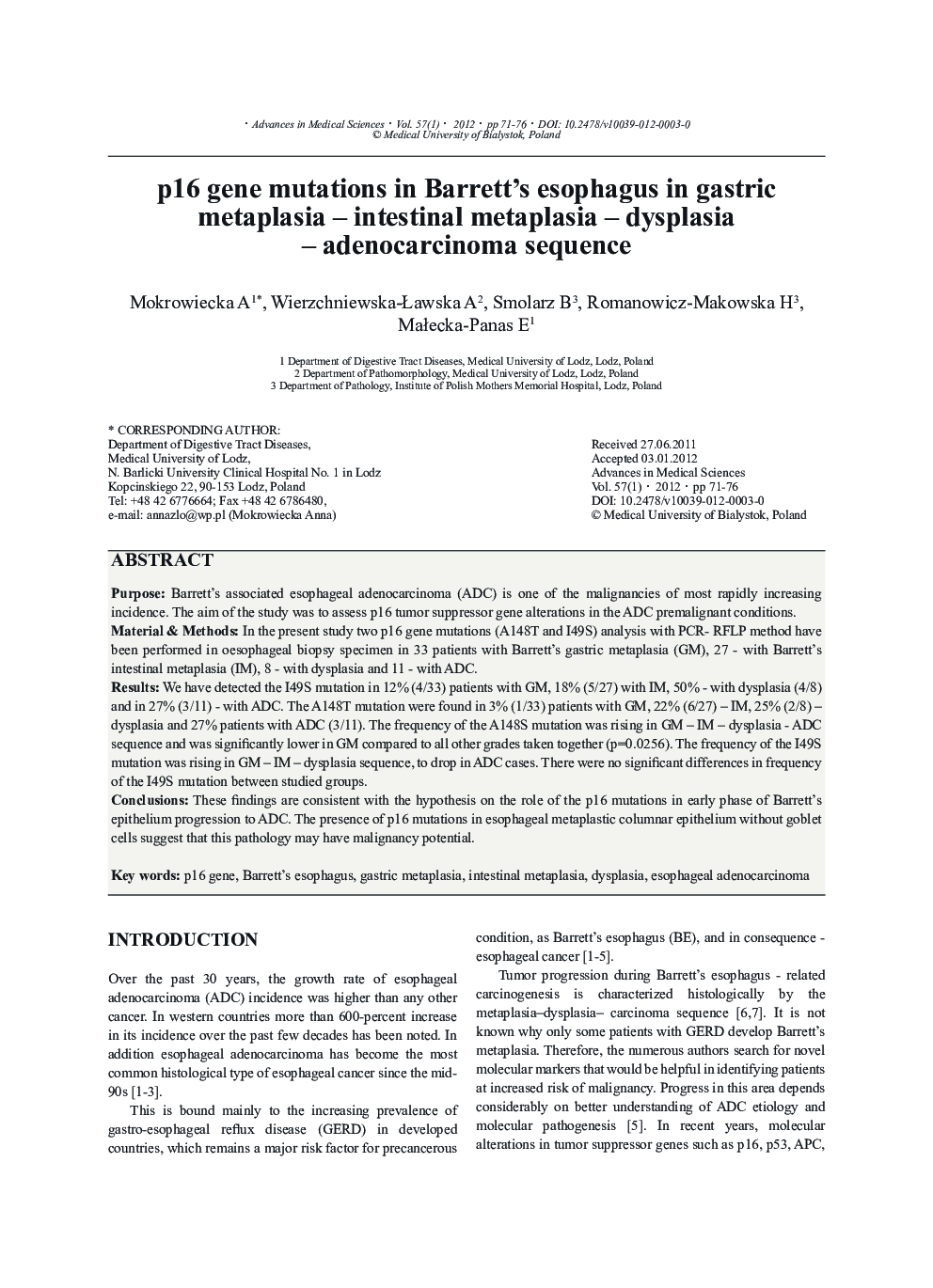| Article ID | Journal | Published Year | Pages | File Type |
|---|---|---|---|---|
| 2032139 | Advances in Medical Sciences | 2012 | 6 Pages |
ABSTRACTPurposeBarrett's associated esophageal adenocarcinoma (ADC) is one of the malignancies of most rapidly increasing incidence. The aim of the study was to assess p16 tumor suppressor gene alterations in the ADC premalignant conditions.Material & MethodsIn the present study two p16 gene mutations (A148T and I49S) analysis with PCR- RFLP method have been performed in oesophageal biopsy specimen in 33 patients with Barrett's gastric metaplasia (GM), 27 - with Barrett's intestinal metaplasia (IM), 8 - with dysplasia and 11 - with ADC.ResultsWe have detected the I49S mutation in 12% (4/33) patients with GM, 18% (5/27) with IM, 50% – with dysplasia (4/8) and in 27% (3/11) – with ADC. The A148T mutation were found in 3% (1/33) patients with GM, 22% (6/27) – IM, 25% (2/8) – dysplasia and 27% patients with ADC (3/11). The frequency of the A148S mutation was rising in GM – IM – dysplasia - ADC sequence and was significantly lower in GM compared to all other grades taken together (p=0.0256). The frequency of the I49S mutation was rising in GM – IM – dysplasia sequence, to drop in ADC cases. There were no significant differences in frequency of the I49S mutation between studied groups.ConclusionsThese findings are consistent with the hypothesis on the role of the p16 mutations in early phase of Barrett's epithelium progression to ADC. The presence of p16 mutations in esophageal metaplastic columnar epithelium without goblet cells suggest that this pathology may have malignancy potential.
